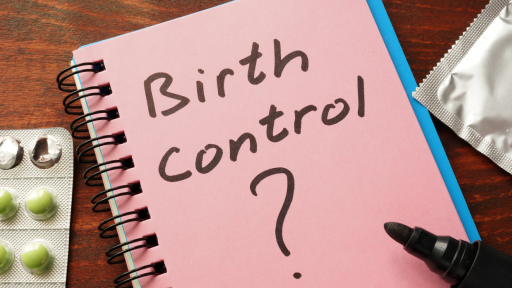Every woman is different. Fortunately, today there are many suitable options for birth control that given women a choice based on their individual needs and lifestyle.
Dr Kothari provides a number of different hormonal contraception birth control options including IUD insertion.
What is Hormonal Contraception?
Hormonal contraception is very effective and the different methods each have their pros and cons and side effects.
Hormonal contraception is the use of a pill, injection, device or treatment that use the hormones estrogen and progestin to prevent pregnancy. There are different types of hormonal birth control; some contain only progestin whilst others contain both estrogen and progestin.
The type of hormone contraception best for you should be discussed with Dr Kothari. He will be able to advise on the use of each method and whether it is a suitable option for you and your lifestyle as some women should not use estrogen-based hormone contraceptives.
The different types of hormonal contraception include:
Pills
Contraceptive pills need to be taken daily, and skipping or missing pills increases the chance of falling pregnant.
Vaginal Rings
These are bendable rings that you place in your vagina and can stay in place for up to 3 weeks. The ring remains in place during sex.
Injections
Hormones are injected by your GP into your arm or bottom every 3 months.
Implants
A contraceptive implant is a tiny rod inserted by your GP into the arm that releases hormones into your body. Implants can stay in the arm for up to 3 years.
What are the pros and cons of hormonal contraception?
Not all women are suited to hormonal contraception, but if it is determined that this method is right for you, lifestyle factors should also be taken into consideration. These include how the method will affect your period and the associated risks and side effects and how you will be able to manage your contraception. For example, if you want to use the contraceptive pill – can you be sure you will remember to take the pill each day? Hormonal contraception does not prevent sexually transmitted infections.
What is an IUD?
IUD stands for Intrauterine Device and is a popular method of birth control as it is a long-term contraceptive method that once inserted can stay in place for a period of 5 – 8 years.
The IUD uses progestin or sometimes copper to prevent sperm from fertilising your eggs.
The insertion of the IUD is a simple in-office procedure that takes Dr Kothari a few minutes to perform. A lubricated speculum is used to gently widen the vaginal canal to allow the IUD to be inserted through the cervical opening. Most women experience very little discomfort during this procedure, but Dr Kothari can use a local anaesthetic if necessary. When the IUD is inserted, the speculum is then removed and the procedure is complete. Dr Kothari performs an ultrasound after the procedure to ensure it is placed correctly in uterine cavity.
What are the pros and cons of IUD insertion?
IUDs are a long-term contraceptive method are more than 99% effective in preventing pregnancy and once inserted, and once removed – your chance of getting pregnant returns to normal. Some of the disadvantages of IUD is that there is a small risk of infection at the time of insertion for up to 3 weeks, if the IUD fails and you become pregnant, there may be complications with the pregnancy and IUDs can fall out. IUDs do not prevent sexually transmitted infections.
What is the best method of birth control for you?
There is no one right solution for women with regards to birth control and there are many different determining factors that need to be considered to ensure you choose the correct option for you.
At your consultation, Dr Kothari will discuss your medical history as well as family planning to help determine the best option for you and your lifestyle.

